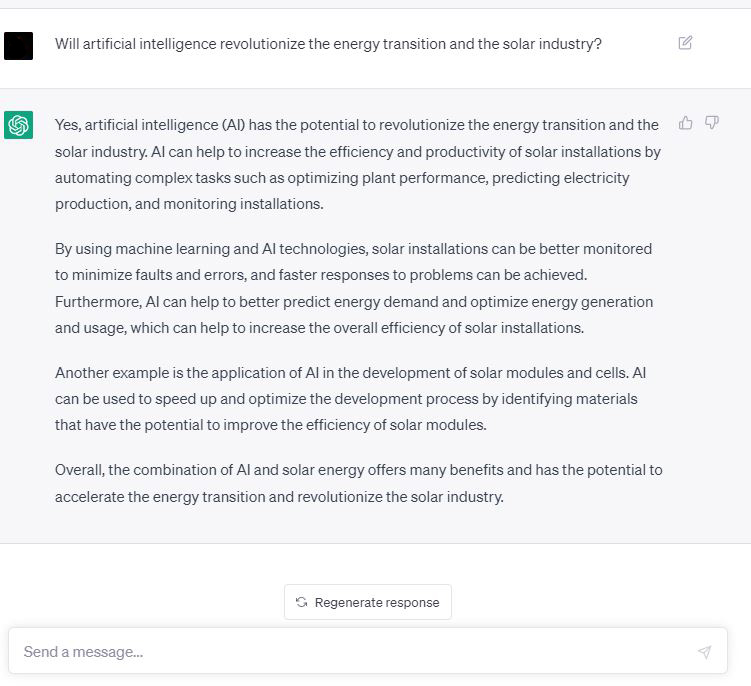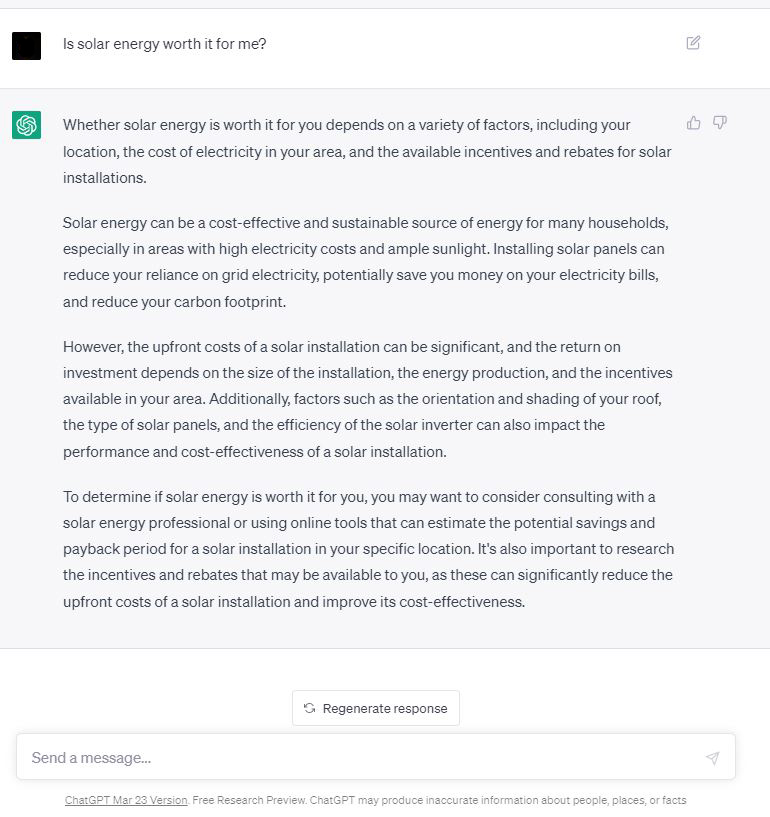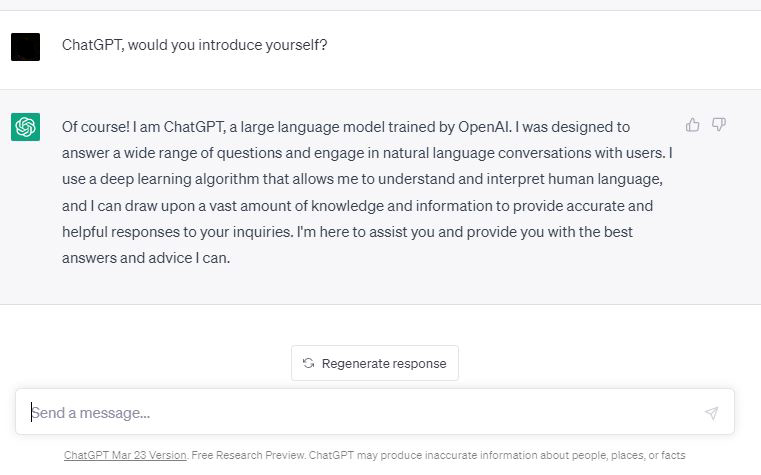Artificial Intelligence and Solar

Artificial intelligence and AI-based programmes such as ChatGPT will soon revolutionise our lives. We don’t yet know exactly how the solar industry and the energy transition can benefit from AI. So let us ask ChatGPT itself.
Google, iPhone, Spotify, Netflix: all names of disruptive technologies that have changed our lives in the last 30 years. Can you imagine life without an online search engine or even a smartphone?
At the end of 2022, a new technological milestone will see the light of day: ChatGPT. Artificial intelligence took the world by storm, with 100 million registered users less than two months after its launch. Since then, there has been a fierce race for new AI software and applications – between start-ups like OpenAI or Midjourney and tech giants like Google and Amazon.
Asked: How is ChatGPT changing the world of solar energy?
What does this have to do with solar energy? Everything. Thanks to artificial intelligence, solar panels will soon work so efficiently that we won’t even want to consider other sources of energy. At least if you ask ChatGPT itself:
The technological advances of this year alone show that science fiction is coming true! Just like HAL 9000 in Stanley Kubrick’s sci-fi classic “2001: A Space Odyssey”, artificial intelligence can act as a kind of intelligent and interactive control centre. The future of solar power generation is bright – at least in theory. AI-based programs could then optimise and monitor PV systems – in real time. Fully automated, the AI will simultaneously collect data on energy production and consumption and make the best use of flexibility. This maximises economic efficiency and can extend the lifespan of installations.
ChatGPT can already identify locations for photovoltaic systems and calculate their economic efficiency – including analysing weather and location data to predict energy production. The results cannot be taken at face value, as artificial intelligence is still in its infancy. But in the future, similar AI models could complement specialised photovoltaic software and apps such as Sunny Design, making the planning of solar installations even more efficient and user-friendly.
Better than Google
ChatGPT is already a huge source of knowledge. It knows a lot about solar energy, a lot. Finding information is even easier than using an online search engine: while Google lists search results, ChatGPT provides a direct answer to the question within seconds – because the AI has already processed and classified all the information from these thousands and thousands of search results. The AI becomes your solar advisor:
ChatGPT provides comprehensible answers to photovoltaic novices without replacing the expertise of PV distributors and installers. Rather, they can use ChatGPT as a useful addition to their daily work.
A saviour with a question mark
Despite the unclear future, the immense potential of artificial intelligence is already clear. For the solar industry, programmes like ChatGPT are not a revolution – at least not yet. Even if ChatGPT can be trained to follow certain calculation paths, its answers should not be trusted ‘blindly’, as the AI does not reveal any sources of information, reference data or calculation paths. Therefore, complex calculations or important decisions still require qualified human verification – or an AI specifically programmed for PV systems. In addition, it remains unclear who will be held responsible for incorrect information or calculations by AIs, and who will be liable in the event of damage. This is a debate that will have to be conducted at a political level – and that will take years.
Artificial intelligence can revolutionise the solar industry if it is used correctly. And that depends entirely on us humans. Even ChatGPT knows that:
Artificial intelligence can not only automatically write text, but also create images. This is how the “Midjourney” tool imagines motifs around photovoltaics in the future.





